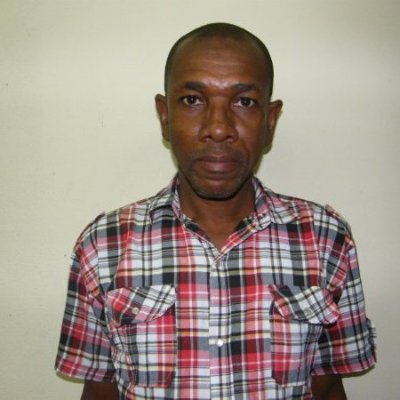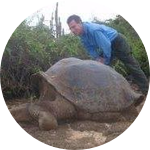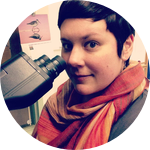About This Project
Jamaica is a highly biodiverse island in the Caribbean, but its ecological resources are threatened by climate and land-use changes. To conserve Jamaica’s flora and fauna, we need a better understanding of how the island’s species responded to past climate and human impacts. Funds raised through this campaign will help us collect sediment cores to develop a 10,000-year long environmental record of vegetation, fire, climate, and human impacts in Jamaica.
Ask the Scientists
Join The DiscussionWhat is the context of this research?
Jamaican habitats support over 900 plant species that are found nowhere else on Earth, in addition to several endemic and endangered wildlife species. The island has several sites that are designated as internationally important conservation areas under global treaties. Few studies have investigated past climate and environmental changes in the Caribbean islands, and of these, Jamaica is one of the least understood. An unresolved question concerns the timing of first human arrival in Jamaica, as the earliest archaeological dates from the island differ greatly from dates for other nearby large islands. Lake sediment cores provide a record of past climate and ecological conditions, and thus can be used to reconstruct Jamaica’s environmental history.
What is the significance of this project?
To this point, no studies have assessed long-term vegetation changes in Jamaica in the combined context of the island's climate and human land-use histories. This research will fill an important knowledge gap in Jamaica’s environmental history, and the findings will create new possibilities for both ecological and archaeological research on the island. Ultimately, this will expand the information available to Jamaican natural resource managers about the causes and effects of environmental change on the island, which will provide significant benefits to local biodiversity and habitat conservation efforts. Overall, our project will promote the advancement of ecological research in Jamaica, and will provide a platform for future studies about prehistoric environmental changes on the island.
What are the goals of the project?
Funds raised through this campaign will allow us to travel to Jamaica to collect lake sediment cores. These sediment cores contain preserved charcoal, pollen, oxygen isotopes, and fungal spores. We will use these records to analyze the fire, vegetation, climate, and land use histories of the island. This information will enable us to answer questions that are critical for maintenance of the island’s rich biodiversity, such as how Jamaican species responded to past climate and human events.
Budget
Funds raised will enable completion of this entire project, which will form the basis of my graduate thesis. Funding I have already received will cover my airfare to Jamaica and fees for checked luggage and field equipment. Funds raised through this initiative will be used to cover airfare for two field assistants; and transportation, lodging and food for our research team while in Jamaica. Funds will be used to rent a watercraft and construct a platform to collect the sediment cores. Funds will be used to ship the sediment cores to the University of Maine, and to cover stable isotope and radiocarbon analyses. Your contributions will allow us to significantly improve our understanding of long-term climate and environmental changes in the tropics, which contain some of Earth’s most biodiverse regions. This website charges an 8% service fee, however the rest of your donation will go directly to this research!
Endorsed by
 Project Timeline
Project Timeline
Fieldwork will be conducted in Jamaica during Summer 2017 for approximately ten days. Data processing and analysis will be conducted upon returning to the University of Maine through to Spring 2018. Project findings will be published during Summer 2018.
May 15, 2017
Project Launched
Jul 01, 2017
Travel to Wallywash Great Pond, Jamaica for fieldwork
Aug 01, 2017
Conduct laboratory data processing and analysis
Apr 01, 2018
Complete laboratory data processing and analysis
Aug 01, 2018
Publish project results
Meet the Team
Affiliates
Affiliates
Mario Williams
My academic interests focus on the relationships between humans, climate and the environment through time. I enjoy hiking and fly fishing, and my passion for the outdoors has led to my involvement in projects that aim to preserve the natural landscapes that we see around us. I grew up in Jamaica, and have always wanted to contribute meaningfully to the development of this beautiful island that I call home. This research project provides me with a special opportunity to fulfill this lifelong dream. It is my hope that scientific advances in biodiversity conservation will enable us to protect the natural environments that we rely on, so that future generations will be able to appreciate and enjoy nature as we do today.
Jacquelyn Gill
I'm an ice age ecologist, using the fossil record to help us understand how climate change and extinction will affect ecological communities. I lead the BEAST Lab (Biodiversity and Environment Across Space and Time) at the University of Maine, where we play in the mud, coax stories out of ancient poop and plants, and learn about past ecosystems. I'm also passionate about science communication and diversity in STEM.
Growing up as the child of parents in the Navy, I moved around a lot, which instilled in me a fascination for the natural world and geography. It was in New England that I really started thinking about history, from abandoned stone walls to Native stories about the land, to the ice age history written in stone and preserved in peat bogs. After graduating from College of the Atlantic, I went to Wisconsin to pursue my graduate work on the consequences of the extinction of ice age animals like mammoths and mastodons. It's there that I started blogging and tweeting about science as ways to make science more accessible. I started a faculty position at the University of Maine in 2013, where I'm excited to work with the next generation of scientists and science-savvy citizen.
Additional Information
Follow these links to learn more about my collaborators, affiliates, and individuals who will be supporting this project both in the lab and field.

University of Maine Climate Change Institute
http://climatechange.umaine.ed...

University of Maine School of Biology and Ecology

National Environment and Planning Agency of Jamaica
The National Environment and Planning Agency of Jamaica will issue research permits to conduct this study, and all project deliverables will be archived with the institution for local public access.

Mr. Patrick Lewis, University of the West Indies, Department of Life Sciences
Patrick Lewis is the herbarium curator at the University of the West Indies, Mona, in Kingston, Jamaica. He will aid us in building a reference collection of pollen from Jamaican plant species and provide valuable information about Jamaican vegetation communities.

LacCore, The National Lacustrine Core Facility
http://lrc.geo.umn.edu/laccore...
Results of initial core description and geophysical analyses conducted at the National Lacustrine Core Facility in Minnesota, USA will provide valuable insights about Jamaica's climate and human land use history. For example, magnetic susceptibility analysis will inform us about variation in terrigenous input to the lake (including from human land clearance), while electrical resistivity may reflect periods of aridity and lower lake levels concentrating solutes.
Project Backers
- 195Backers
- 101%Funded
- $10,043Total Donations
- $51.50Average Donation



